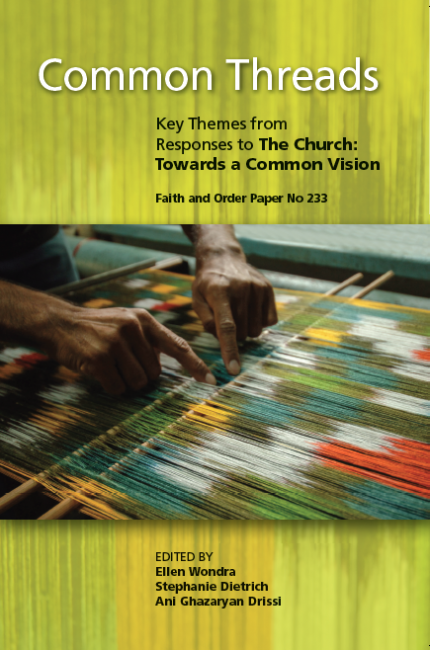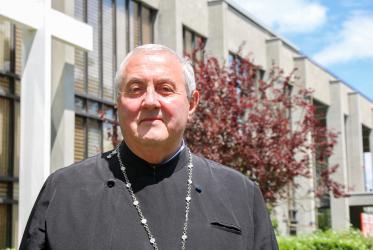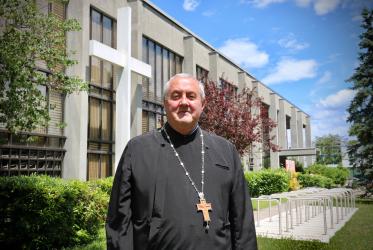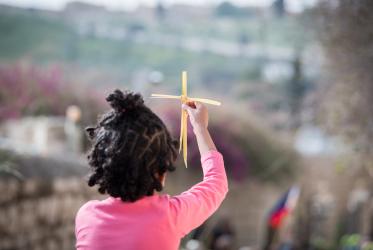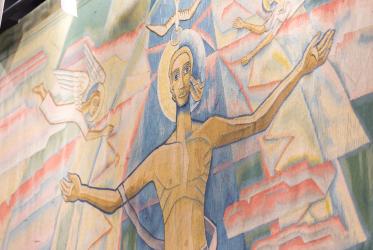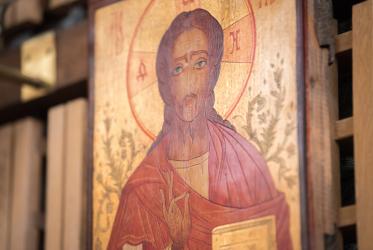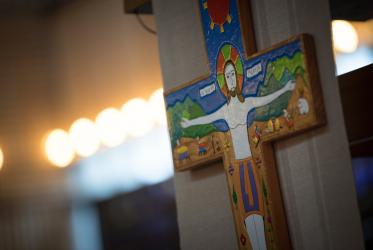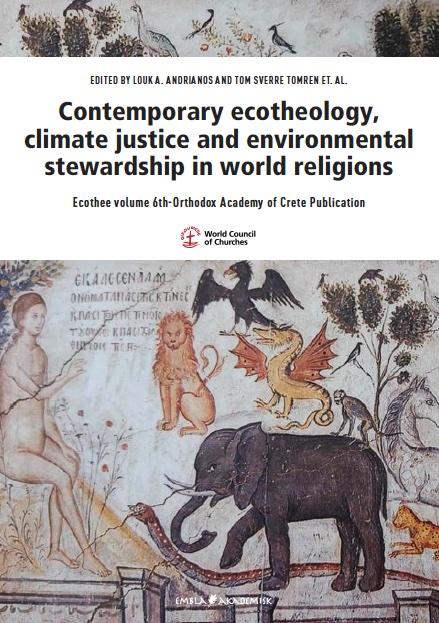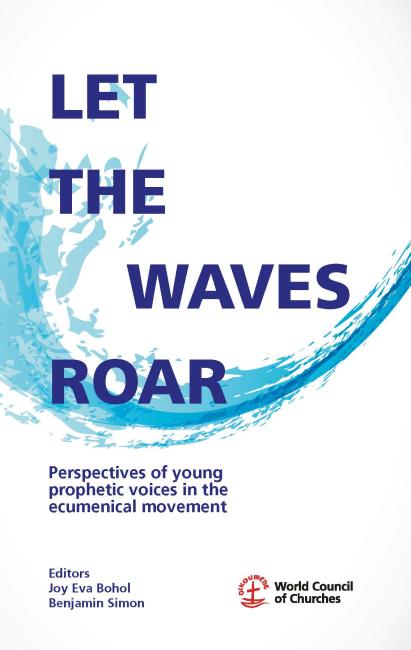Displaying 101 - 120 of 285
Pilgrims on the Path of Peace
The Journey of the WCC from Busan to Karlsruhe (Unillustrated)
28 February 2022
Common Threads
Key Themes from Responses to The Church: Towards a Common Vision. Faith and Order Paper No 233
25 February 2022
WCC shares greetings with Jamaica Baptist Union
24 February 2022
Tutu’s legacy: A Zoom panel celebrating “the Arch”
03 February 2022
WCC video interview describes human rights crisis in West Papua
13 January 2022
11th Assembly Bible study - The Exaltation of the Holy Cross
22 December 2021
11th Assembly Bible study - Transfiguration
22 December 2021
11th Assembly Bible study - Pentecost
22 December 2021
11th Assembly Bible study - Ascension
21 December 2021
11th Assembly Bible study - Easter
20 December 2021
11th Assembly Bible study - Holy Week
20 December 2021
11th Assembly Bible study - Lent
20 December 2021
11th Assembly Bible study - Epiphany
20 December 2021
Contemporary Ecotheology, Climate Justice and Environmental Stewardship in World Religions
Ecothee Volume 6th-Orthodox Academy of Crete Publication
19 December 2021
Let the Waves Roar
Perspectives of Young Prophetic Voices in the Ecumenical Movement
19 December 2021

